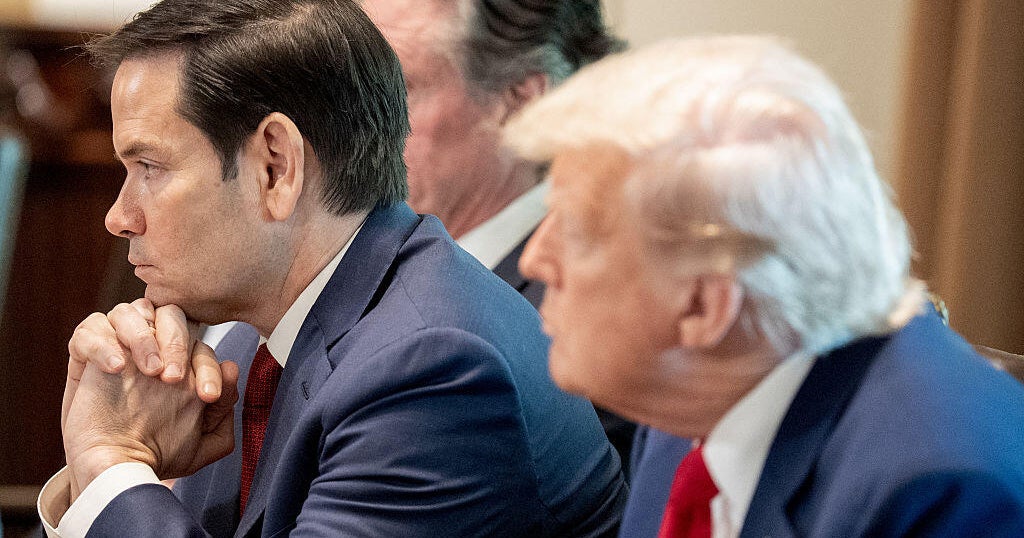The Trump administration is in active discussions with Rwanda regarding a potential agreement for Kigali to accept deportees from the United States. These deportees may include individuals from various African nations as well as non-Rwandan nationals. The talks focus on financial compensation and other critical details and are set to unfold over the next two weeks. The arrangement seeks to manage the ongoing influx of migrants to the U.S. and follows Rwanda’s prior experiences with similar deportations from the U.K.
| Article Subheadings |
|---|
| 1) Discussions on Deportations Begin |
| 2) Past Experiences with Deportees in Rwanda |
| 3) Broader Context of U.S. Deportation Policies |
| 4) Peace Initiatives between Rwanda and the DRC |
| 5) Implications of the Agreement |
Discussions on Deportations Begin
The Trump administration, alongside Rwandan officials, is currently discussing the logistics of deporting individuals from U.S. soil to Rwanda. These discussions surfaced after an independent journalist uncovered that an Iraqi national had been deported from the U.S. to Rwanda earlier this month, marking a significant step in the negotiation process. Officials from both nations have confirmed that compensation arrangements for accepting these deportees are expected to be elaborated in the coming weeks. This initiative reflects the administration’s ongoing attempts to find international support for managing its immigration challenges.
Past Experiences with Deportees in Rwanda
Rwanda’s approach to handling deportees has been shaped by previous collaborations, notably a controversial deal with the United Kingdom involving the deportation of asylum seekers. This arrangement faced significant legal and political scrutiny, ultimately leading to its cessation after new leadership took office in the U.K. With unique experiences in managing such situations, Rwandan officials are positioning themselves as capable partners in these negotiations. They emphasize their past successes and are keen on establishing a systematic approach for any incoming deportees from the U.S., ensuring that both countries benefit from this new collaboration.
Broader Context of U.S. Deportation Policies
The potential agreement with Rwanda is part of a broader pattern of U.S. immigration policy that seeks to manage the complexities associated with deportations. Various countries have entered agreements with the Trump administration to accept deportees. This has included arrangements with nations like El Salvador, which has faced its legal challenges after accepting migrants from the U.S. Additionally, Mexico and Panama have opened their borders to certain deportees who do not hold their nationality. These measures are indicative of a wider strategy aimed at alleviating the pressures of increased migration to the U.S. and creating more streamlined processes for deportation.
Peace Initiatives between Rwanda and the DRC
As the negotiations concerning deportees unfold, they coincide with concurrent efforts to broker peace between Rwanda and the Democratic Republic of the Congo (DRC). Recently, U.S. Secretary of State Marco Rubio mentioned his involvement in facilitating a peace agreement, a move considered critical in maintaining regional stability. As conflicts in the region continue to impact migration patterns, establishing peaceful relations between these two nations is seen as essential for both national security and immigration management.
Implications of the Agreement
If the agreement between the U.S. and Rwanda takes shape, it may provide a new framework for managing deportations and the associated complexities. Not only could this arrangement impact the individuals involved, but it may also alter the dynamics of U.S.-African relations. Observers are keen to watch how this collaboration may influence future agreements with other nations and the overall efficacy of U.S. deportation policies. The agreement’s establishment could signify a broader international understanding as nations grapple with the challenges posed by migration, refugee crises, and human rights considerations.
| No. | Key Points |
|---|---|
| 1 | The Trump administration is negotiating with Rwanda to accept deportees from the U.S. |
| 2 | Compensation details for the accepting country are expected to be discussed soon. |
| 3 | Rwanda has prior experience dealing with deportees from the U.K. |
| 4 | The U.S. is exploring broader deportation arrangements with various nations. |
| 5 | Peace initiatives between Rwanda and the DRC are concurrent with these discussions. |
Summary
The discussions surrounding the deportation agreement between the Trump administration and Rwanda mark a significant development in U.S. immigration policy. This negotiation not only illustrates the complexities of international partnerships amidst ongoing migration challenges but also sets a precedent for future actions involving deportations. The decision to potentially send non-Rwandan nationals to Rwanda demonstrates a willingness to engage with African nations on critical issues facing the global community, including migration and human rights.
Frequently Asked Questions
Question: What types of individuals are likely to be deported to Rwanda?
The deportees may include Africans as well as other non-Rwandan nationals, primarily those deemed unsuitable for residency in the U.S.
Question: Why is the U.S. looking to Rwanda for deportations?
Rwanda has previous experience with managing deportees and is seen as a potential strategic partner in alleviating the pressures on U.S. immigration systems.
Question: How does this deportation deal fit into broader U.S. immigration policies?
The deal is part of a larger strategy by the Trump administration to manage increased migration to the U.S. through international agreements with various nations.


